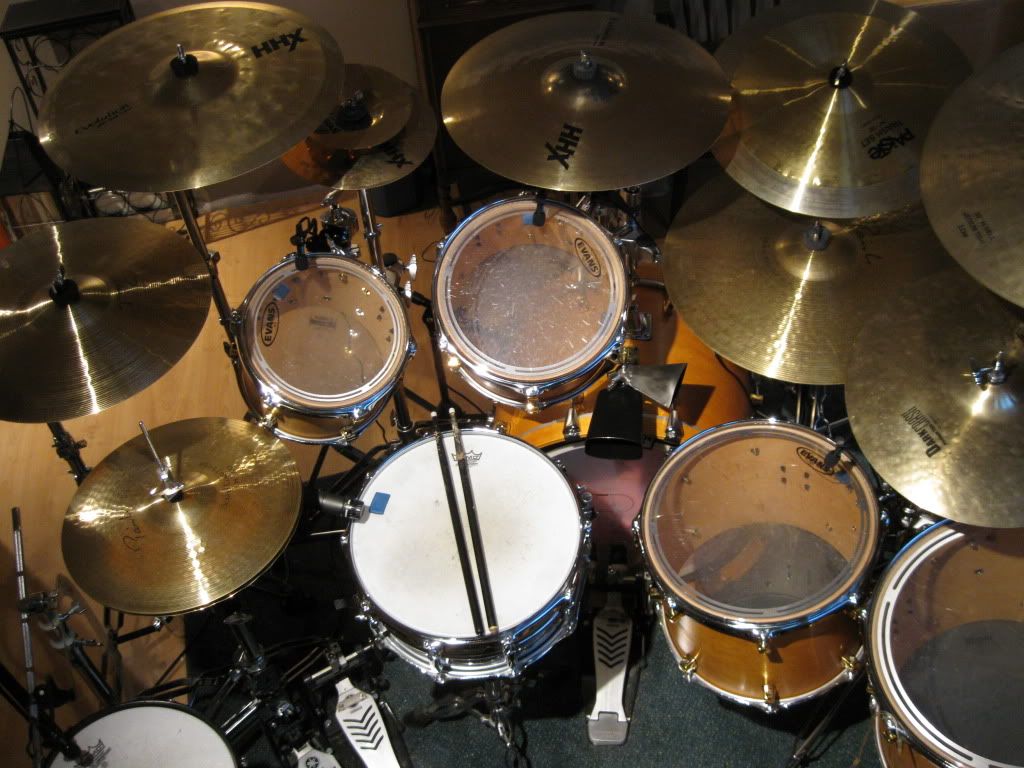Bobby Fischer Passes Away
Jan 18, 2008 11:36:49 GMT -5
Post by Disgruntled70sHab on Jan 18, 2008 11:36:49 GMT -5
I started playing chess around 11 or 12 and I kept playing through high school. The guy was kind of a mentor at one point. I bought a small pocket novel, "Bobby Fischer Teaches Chess" lost it, then bought another copy only a few years ago when teaching Dis Jr how to play.
One phrase comes to mind:
"... “Poets do not go mad; but chess players do ... I am not attacking logic: I only say that this danger does lie in logic, not in imagination.”
G.K. Chesterton
Indeed! I played a lot of chess overseas where the competition is generally very strong. Our best Canadian player was a communications technician named Francois. So, naturally we called him, "Frank."
Frank was pretty much a competitive recreational player by that point. But, I never saw the guy lose. However, he was a nationally-ranked earlier in his life and made it all the way to the final tables in the Canadian Chess Championships.
Frank didn't get past the final tables because something in him snapped. He told me there were just too many combinations and he went into overload. That gave him two weeks on the hospital.
Chess champion Bobby Fischer dead at 64
By Gudjon Helgason, THE ASSOCIATED PRESS
REYKJAVIK, Iceland - Bobby Fischer, the reclusive American chess master who became a Cold War icon when he dethroned the Soviet Union's Boris Spassky as world champion in 1972, has died. He was 64.
Fischer died Thursday in a Reykjavik hospital, his spokesman, Gardar Sverrisson, said. There was no immediate word on the cause of death.
Born in Chicago and raised in Brooklyn, Robert James Fischer was a U.S. chess champion at 14 and a grand master at 15. He beat Spassky in a series of games in Reykjavik to claim America's first world chess championship in more than a century.
The event had tremendous symbolic importance, pitting the intensely individualistic young American against a product of what was portrayed in the western media as a grim and soulless Soviet Union.
It also was marked by Fischer's odd behaviour - possibly calculated psychological warfare against Spassky - that ranged from arriving two days late to complaining about the lighting, TV cameras, the spectators, even the shine on the table.
Spassky said in a brief phone call from France, where he lives, that he was "very sorry" to hear of Fischer's death.
Former Russian chess champion Garry Kasparov said Fischer's conquest of the chess world in the 1960s was "a revolutionary breakthrough" for the game.
But Fischer's reputation as a chess genius soon was eclipsed by his idiosyncrasies. He lost his world title in 1975 after refusing to defend it against Anatoly Karpov. He dropped out of competitive chess and largely out of view, emerging occasionally to make erratic and often anti-Semitic comments, although his mother was Jewish.
"The tragedy is that he left this world too early, and his extravagant life and scandalous statements did not contribute to the popularity of chess," Kasparov told The Associated Press.
Fischer lived in secret outside the United States but emerged in 1992 to confront Spassky again, in a highly publicized match in Yugoslavia. Fischer beat Spassky 10-5 to win $3.35 million.
The U.S. government said Fischer's playing the match violated UN sanctions against Yugoslavia, imposed for Serb leader Slobodan Milosevic's role in fomenting war in the Balkans.
Over the years, Fischer gave occasional interviews with a radio station in the Philippines, often digressing into anti-Semitic rants and accusing American officials of hounding him.
He praised the Sept. 11 terrorist attacks, saying America should be "wiped out," and described Jews as "thieving, lying bastards." His mother was Jewish.
He also announced he had abandoned chess in 1996 and launched a new version in Argentina, "Fischerandom," a computerized shuffler that randomly distributes chess pieces on the back row of the board at the start of each game.
Fischer claimed it would bring the fun back into the game and rid it of cheats.
In July 2004, Fischer was arrested in Japan and threatened with extradition to the United States to face sanctions-busting charges. He spent nine months in custody before the dispute was resolved when Iceland - a chess-mad country and site of his greatest triumph - granted him citizenship.
Fischer told reporters that he was finished with a chess world he regarded as corrupt, and sparred with U.S. journalists who asked about his anti-American tirades.
"The United States is evil. There's this axis of evil. What about the allies of evil - the United States, England, Japan, Australia? These are the evildoers," Fischer said.
In his final years, Fischer railed against the chess establishment, alleging that the outcomes of many top-level chess matches were decided in advance.
Instead, he championed his concept of random chess.
"I don't play the old chess," he told reporters upon arrival in Iceland. "But obviously if I did, I would be the best."
cnews.canoe.ca/CNEWS/World/2008/01/18/4780087-cp.html
One phrase comes to mind:
"... “Poets do not go mad; but chess players do ... I am not attacking logic: I only say that this danger does lie in logic, not in imagination.”
G.K. Chesterton
Indeed! I played a lot of chess overseas where the competition is generally very strong. Our best Canadian player was a communications technician named Francois. So, naturally we called him, "Frank."
Frank was pretty much a competitive recreational player by that point. But, I never saw the guy lose. However, he was a nationally-ranked earlier in his life and made it all the way to the final tables in the Canadian Chess Championships.
Frank didn't get past the final tables because something in him snapped. He told me there were just too many combinations and he went into overload. That gave him two weeks on the hospital.
Chess champion Bobby Fischer dead at 64
By Gudjon Helgason, THE ASSOCIATED PRESS
REYKJAVIK, Iceland - Bobby Fischer, the reclusive American chess master who became a Cold War icon when he dethroned the Soviet Union's Boris Spassky as world champion in 1972, has died. He was 64.
Fischer died Thursday in a Reykjavik hospital, his spokesman, Gardar Sverrisson, said. There was no immediate word on the cause of death.
Born in Chicago and raised in Brooklyn, Robert James Fischer was a U.S. chess champion at 14 and a grand master at 15. He beat Spassky in a series of games in Reykjavik to claim America's first world chess championship in more than a century.
The event had tremendous symbolic importance, pitting the intensely individualistic young American against a product of what was portrayed in the western media as a grim and soulless Soviet Union.
It also was marked by Fischer's odd behaviour - possibly calculated psychological warfare against Spassky - that ranged from arriving two days late to complaining about the lighting, TV cameras, the spectators, even the shine on the table.
Spassky said in a brief phone call from France, where he lives, that he was "very sorry" to hear of Fischer's death.
Former Russian chess champion Garry Kasparov said Fischer's conquest of the chess world in the 1960s was "a revolutionary breakthrough" for the game.
But Fischer's reputation as a chess genius soon was eclipsed by his idiosyncrasies. He lost his world title in 1975 after refusing to defend it against Anatoly Karpov. He dropped out of competitive chess and largely out of view, emerging occasionally to make erratic and often anti-Semitic comments, although his mother was Jewish.
"The tragedy is that he left this world too early, and his extravagant life and scandalous statements did not contribute to the popularity of chess," Kasparov told The Associated Press.
Fischer lived in secret outside the United States but emerged in 1992 to confront Spassky again, in a highly publicized match in Yugoslavia. Fischer beat Spassky 10-5 to win $3.35 million.
The U.S. government said Fischer's playing the match violated UN sanctions against Yugoslavia, imposed for Serb leader Slobodan Milosevic's role in fomenting war in the Balkans.
Over the years, Fischer gave occasional interviews with a radio station in the Philippines, often digressing into anti-Semitic rants and accusing American officials of hounding him.
He praised the Sept. 11 terrorist attacks, saying America should be "wiped out," and described Jews as "thieving, lying bastards." His mother was Jewish.
He also announced he had abandoned chess in 1996 and launched a new version in Argentina, "Fischerandom," a computerized shuffler that randomly distributes chess pieces on the back row of the board at the start of each game.
Fischer claimed it would bring the fun back into the game and rid it of cheats.
In July 2004, Fischer was arrested in Japan and threatened with extradition to the United States to face sanctions-busting charges. He spent nine months in custody before the dispute was resolved when Iceland - a chess-mad country and site of his greatest triumph - granted him citizenship.
Fischer told reporters that he was finished with a chess world he regarded as corrupt, and sparred with U.S. journalists who asked about his anti-American tirades.
"The United States is evil. There's this axis of evil. What about the allies of evil - the United States, England, Japan, Australia? These are the evildoers," Fischer said.
In his final years, Fischer railed against the chess establishment, alleging that the outcomes of many top-level chess matches were decided in advance.
Instead, he championed his concept of random chess.
"I don't play the old chess," he told reporters upon arrival in Iceland. "But obviously if I did, I would be the best."
cnews.canoe.ca/CNEWS/World/2008/01/18/4780087-cp.html









